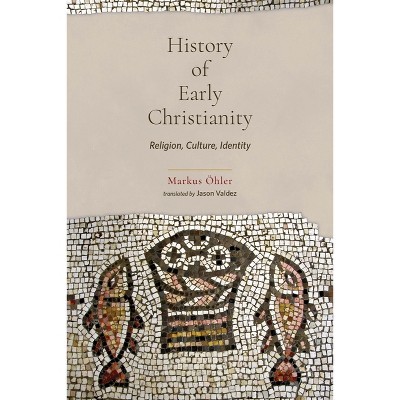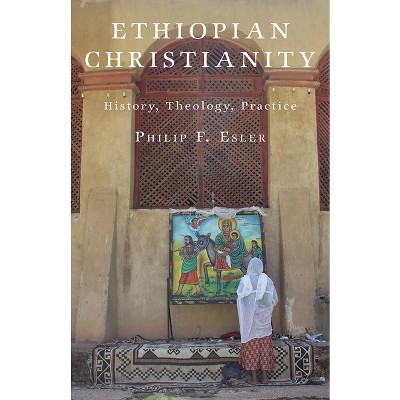Global Christianity and the Black Atlantic - (Studies in World Christianity) by Andrew E Barnes (Hardcover)

About this item
Highlights
- Many Europeans saw Africa's colonization as an exhibition of European racial ascendancy.
- About the Author: Andrew E. Barnes is Associate Professor of History at Arizona State University.
- 219 Pages
- Religion + Beliefs, Christianity
- Series Name: Studies in World Christianity
Description
About the Book
Barnes' study documents how African Christians sought to maintain indigenous identity and agency in the face of colonial domination by the state and even the European Christian missions of the church.Book Synopsis
Many Europeans saw Africa's colonization as an exhibition of European racial ascendancy. African Christians saw Africa's subjugation as a demonstration of European technological superiority. If the latter was the case, then the path to Africa's liberation ran through the development of a competitive African technology.
In Global Christianity and the Black Atlantic, Andrew E. Barnes chronicles African Christians' turn to American-style industrial education--particularly the model that had been developed by Booker T. Washington at Alabama's Tuskegee Institute--as a vehicle for Christian regeneration in Africa. Over the period 1880-1920, African Christians, motivated by Ethiopianism and its conviction that Africans should be saved by other Africans, proposed and founded schools based upon the Tuskegee model. Barnes follows the tides of the Black Atlantic back to Africa when African Christians embraced the new education initiatives of African American Christians and Tuskegee as the most potent example of technological ingenuity. Building on previously unused African sources, the book traces the movements to establish industrial education institutes in cities along the West African coast and in South Africa, Cape Province, and Natal. As Tuskegee and African schools modeled in its image proved, peoples of African descent could--and did--develop competitive technology. Though the attempts by African Christians to create industrial education schools ultimately failed, Global Christianity and the Black Atlantic demonstrates the ultimate success of transatlantic black identity and Christian resurgence in Africa at the turn of the twentieth century. Barnes' study documents how African Christians sought to maintain indigenous identity and agency in the face of colonial domination by the state and even the European Christian missions of the church.Review Quotes
Barnes has an important story to tell and he makes a signal contribution to the study of the Black Atlantic while also giving scholars considerable food for thought about the potential payoffs and pitfalls of digitised sources in historical research.
--Robert Trent Vinson "Journal of Southern African Studies"This book is a stimulating and provocative read which raises very interesting questions.
--David Killingray "Studies in World Christianity"...Barnes's exploration of Ethiopianism to tell a different story about industrialism, civilization, and modernity is noteworthy. His work challenges the field of religious history to highlight a cadre of African educators and leaders who traveled from Africa to the United States and back, a tale that will surely inspire more conversations.
--Jamil Drake "Journal of Religion in Africa"In this rich, content-laden study, Barnes introduces us in depth to several significant figures on both sides of the Atlantic and to the vital role the African-edited newspapers played in the transmission of their ideas, African American leaders were especially widely quoted and reprinted in the newspapers....In short, this is a book that belongs in every missiological and African studies collection.
--Richard V. Pierard "International Bulletin of Mission Research"About the Author
Andrew E. Barnes is Associate Professor of History at Arizona State University.
Shipping details
Return details
Trending Non-Fiction











